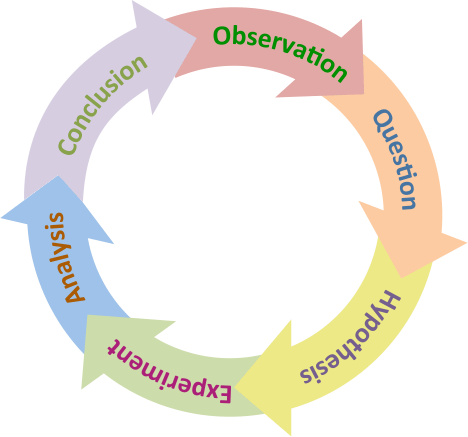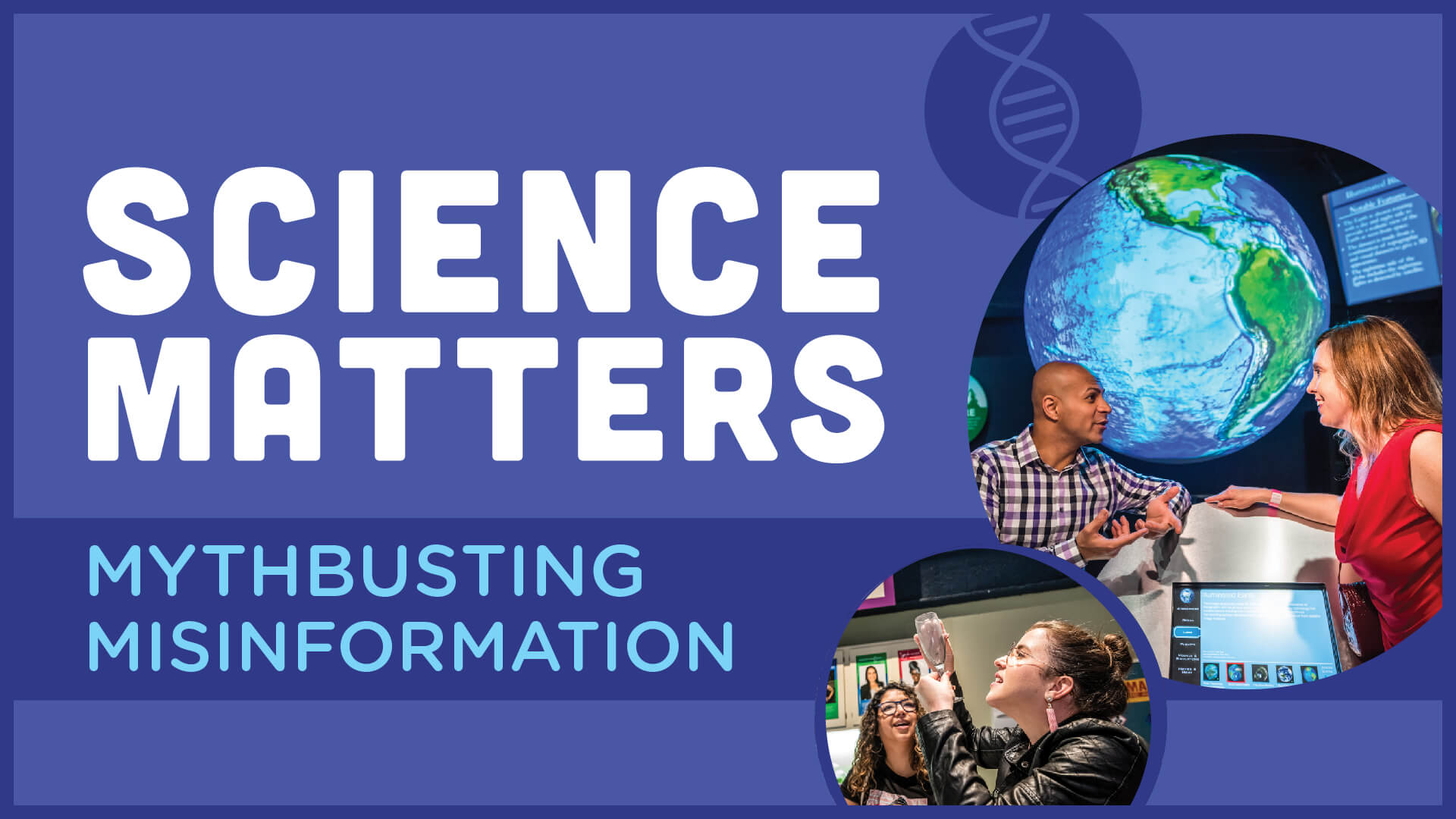Evidence is Essential
One of the biggest and most beautiful challenges we face is that our understanding of the world is constantly changing based on new discoveries and information. Knowledge is not static. Theories change and evolve. As we continue to learn, we continue to grow.
The process of science is messy. It's full of observation and experimentation, theories and hypotheses. We must remain open to new information and use our critical thinking skills to test that information against a body of evidence. Science is a never-ending pursuit of knowledge to solve complex problems that help us better navigate this complicated world.
This means that what we believe to be true may change as new data comes into play. There are very few absolutes in the world of science learning. To help our public navigate these confusing times, Orlando Science Center launched Science Matters, which is a public information campaign that supports science literacy, both online and on the exhibit floor.
Our latest campaign addresses how to use critical thinking to make informed decisions, including evaluating evidence and data related to science topics. Below you will find resources and activities to help you and your loved ones, including your children, develop confidence and new skills with using this process to make informed choices.

Proof is a Process
The scientific method is based on inductive reasoning, which means that scientists make observations and test them to reach a conclusion. The method is a cyclical process, and each conclusion often leads to a new observation.
The scientific method applies to so much more than just science, though! Anyone can use the scientific method to test observations in their everyday lives.
There is a lot of information regarding scientific topics presented without evidence-based reasoning or fact checking.
Applying the Scientific Method and Critical Thinking to Your Decision Making
Using this method can be incredibly useful when trying to make informed choices. For example, imagine you see a post on social media that says Pluto has been declared a planet again. You might ask yourself, “Is this true? What about the reasons scientists gave for reclassifying Pluto as a dwarf planet?” You might think to yourself, “I bet they were convinced by all the people who were campaigning to include Pluto in our solar system.”
So, you investigate. You look at the source of the information and discover that it’s a personal blog for an aspiring astronomer who has no professional qualifications. You visit the websites of nationally recognized experts on astronomy, including NASA and the International Astronomical Union, which is the group that decides definitions for Astronomy and planets.
You have discovered that none of these credible sources agree that Pluto is a part of our solar system. You’ve done your analysis and concluded that your hypothesis was incorrect. You’ve just applied the scientific method to information you found online!
Resources for Understanding the Scientific Method
The Scientific Method: Steps, Examples, Tips, and Exercise
From Sprouts, an organization dedicated to explaining complicated ideas in simple cartoon animations, this video is a kid-friendly introduction to the scientific method.
How Simple Ideas Lead to Scientific Discoveries
Adam Savage – widely known for his time on the hit show MythBusters – may not have a college degree, but he has a curious mind and shows that anyone can use the scientific method to learn something new!
An Introduction to Misinformation
Let’s put the scientific method to use by exploring how we can use it to identify misinformation. That means we first need to understand what misinformation is. It can be as difficult to explain as it is to recognize! These videos do a great job at introducing the topic of misinformation.
Resources for Teens, Adults & Educators
Temple University's "Fake News", Misinformation and Disinformation: How to identify and avoid inaccurate information. is a fantastic starting point for anyone looking to learn more about discerning trustworthy sources. The site gives an overview of types of "Fake News" and how to identify it, as well as resources for practicing your evaluation skills, tools for fact checking, unconscious bias assessments and so much more.
Educators, be sure to check out Temple's Teaching Resources page for activities and content to help you broach the subject of misinformation with your students!
Resources for Families with Young Children
- From PBS: How to Talk to Kids About Honesty. Despite our best parenting efforts, most kids are going to lie sometimes. In this article, experts share how to encourage children to speak openly and honestly.
- From Parents: Age-by-Age Guide to Lying: How to Teach Kids About Honesty. In this article, experts outline the reasons why children lie at different ages as well as some age-appropriate strategies for addressing deception as caregivers teach their children to value honesty.
- From Scholastic: The Truth About Lying: Learning to fib is an important step in your child's development. Learning to lie plays an important and positive role in normal development of skills such as independence, perspective taking, and emotional control. This article outlines how, developmentally, lying evolves in young children and shares some strategies for helping children develop a better understanding of truthfulness
You're Almost Ready to Put Your Knowledge to the Test!
Check out these videos to learn critical skills, such as identifying a misleading graph (very important and very common in scientific research!). Plus, learn how misinformation can spread and what your role in the cycle is!
Test Your Truth-Detectors!
At Orlando Science Center, we are still learning new things every day about how to be better communicators and purveyors of information. As we find new games and tools to help us improve, we want to share them with you! Try out the games below (and check back for more games soon!) to test your truth sleuthing skills, or come visit the Science Center, where you'll get hands on with Pop-Up Science programming around the building!
Bad News (For Ages 14+)
This game is designed to help players expose the tactics and manipulation techniques that are used to mislead people and build up a following. Bad News works as a psychological "vaccine" against disinformation: playing it builds cognitive resistance against common forms of manipulation that you may encounter online.
AutoCorrect
An interactive experience that will teach you how to sift through misinformation and analyze your own sources.
